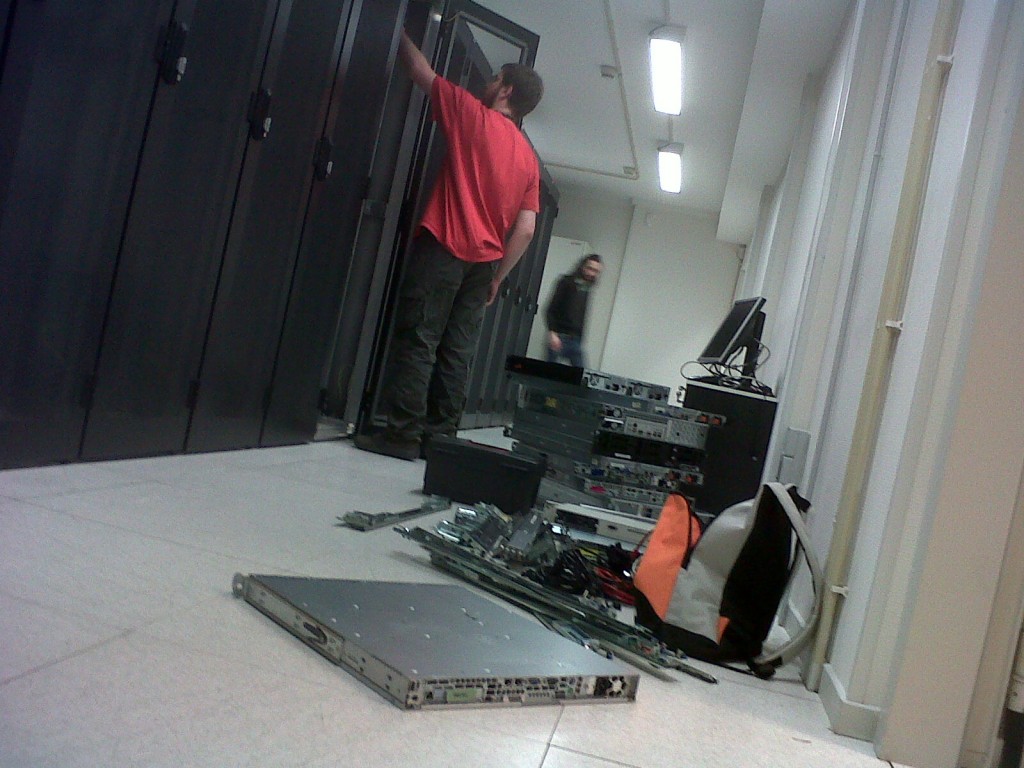Dans un billet précédent, nous avions identifié 3 points pour les évolutions de lautre.net:
- supprimer les IPs publiques des frontaux
- mettre à jour AlternC (le bureau)
- rajouter un/des serveurs MySQL
Depuis environ 2 semaines, nous avons supprimé les IPs des frontaux web. Contrairement à ce qui a été annoncé, mêmes les sites qui avaient gardé les IPs des frontaux en dur continuent de fonctionner (les répartiteurs de chargent portent encore ces adresses pour des raisons de rétro-compatibilité). Une étape de moins donc! Il nous reste à valider l’installation de nouveaux frontaux, pour passer au point suivant.
Pour ce qui est de la mise à jour d’AlternC, les avis sont partagés. D’une part, la nouvelle version d’AlternC demande plus de ressources (puisque le serveur web prend l’identité de l’utilisateur, plus de processus sont créés, entrainant une hausse de consommation). La mise à plat des frontaux permet donc de contrer ce premier argument, c’est en bon chemin.
Ensuite, la nouvelle version d’AlternC n’a pas été testé à aussi grande échelle que lautre.net. Couplé aux disponibilités décroissantes des roots, cela implique que si l’infra tombe, il sera plus difficile de diagnostiquer et corriger. C’est encore en débat donc.
Le 3ème point n’a que peu évolué, puisqu’il dépend beaucoup du précédent.
Concernant les ralentissements perçus sur l’acheminement des mails, il s’agit semble-t-il d’une recrudescence d’envoi de SPAM qui aurait provoqué cette gène. D’un point de vue système, tout est ok.
Pour ce qui est des statistiques, nous avons effectivement constaté que le robot avait cessé de fonctionner pendant quelques jours. Après un redémarrage manuel, ça semblait OK pour ce jour là. Reste à vérifier si c’est le cas. Pour ces quelques jours manquants, il se pourrait que ce soit également du à la mise à jour de l’infra, qui fausse ce jeu de stats. (mode jargon: on utilise un reverse proxy en front, qui ne relayait pas l’adresse du visiteur mais celle du proxy).
Voilà un petit peu pour ce qui se passe en ce moment. Désolé pour le manque de communication de ces derniers temps.
Mise à jour:
Deux choses.
- Du fait du reverse proxy (oui le truc qui a cassé les stats), vous ne pouvez plus vous fier aux IP des visiteurs dans vos htaccess. Les directives allow from <<ip>> sont donc inopérantes (pour l’instant, on travaille à résoudre cela).
- À cause d’une charge importante sur les machines, nous avons choisi de désactiver l’execution de programmes depuis php. Les fonctions type exec sont donc maintenant désactivées, avec effet immédiat. Espérant que cela ne perturbe pas trop vos sites (sinon, contactez-nous )

